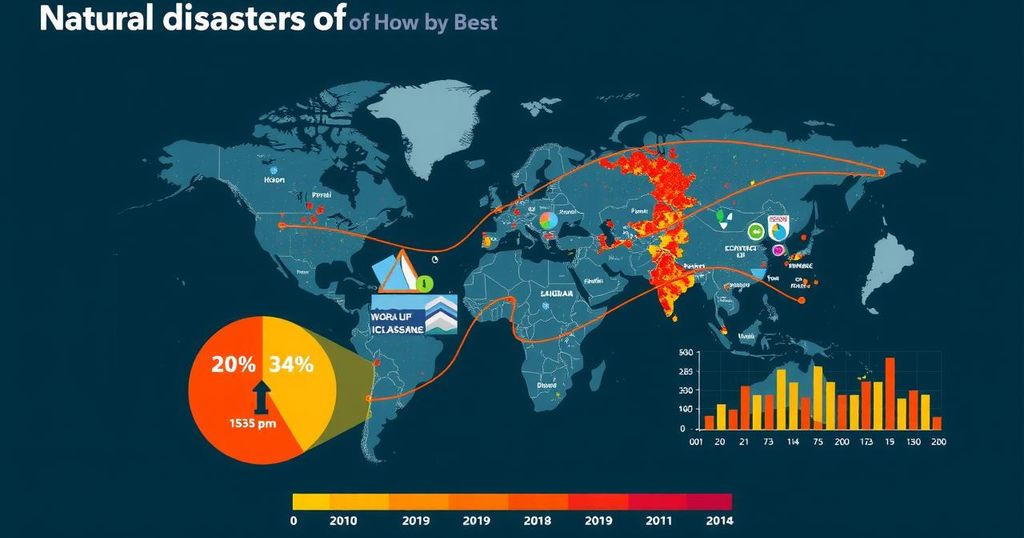Global Economic Losses from Natural Disasters Reach $310 Billion in 2024

Natural disasters caused $310 billion in global economic losses in 2024, according to Swiss Re. This amount represents a six percent rise from the previous year, with insured losses escalating to $135 billion, chiefly influenced by hurricanes in the U.S. and flooding in Europe. The report emphasizes the increasing effects of climate change on extreme weather conditions and the need for adaptive measures.
In 2024, natural disasters incurring economic losses reached a staggering $310 billion globally, according to Swiss Re, as climate change significantly influences weather patterns. This figure reflects a six percent increase from the previous year, which is currently the hottest on record. Insured losses alone rose by seventeen percent from 2023, amounting to $135 billion, largely driven by hurricanes Helene and Milton in the U.S. and severe flooding in Europe, indicating the ongoing trend of high insured losses.
The increasing severity and frequency of natural disasters can be attributed to the impacts of climate change, which alters weather patterns and exacerbates extreme weather events. The year 2024 is poised to be the hottest ever documented, with the European Union’s climate monitor Copernicus noting a rise in global temperatures exceeding 1.55 degrees Celsius above the pre-industrial average. This situation raises concerns regarding the implications for both human safety and economic stability, especially in urban locales that are becoming increasingly susceptible to natural calamities.
In summary, the economic implications of natural disasters have been significantly pronounced in 2024, with particular emphasis on the influence of climate change. Insured losses have reached unprecedented levels, underscoring the urgent need for adaptation strategies to mitigate future risks. Swiss Re’s report highlights the importance of preemptive measures, such as constructing protective infrastructure, to manage the growing threat posed by extreme weather and to safeguard economic interests.
Original Source: www.fox28spokane.com






